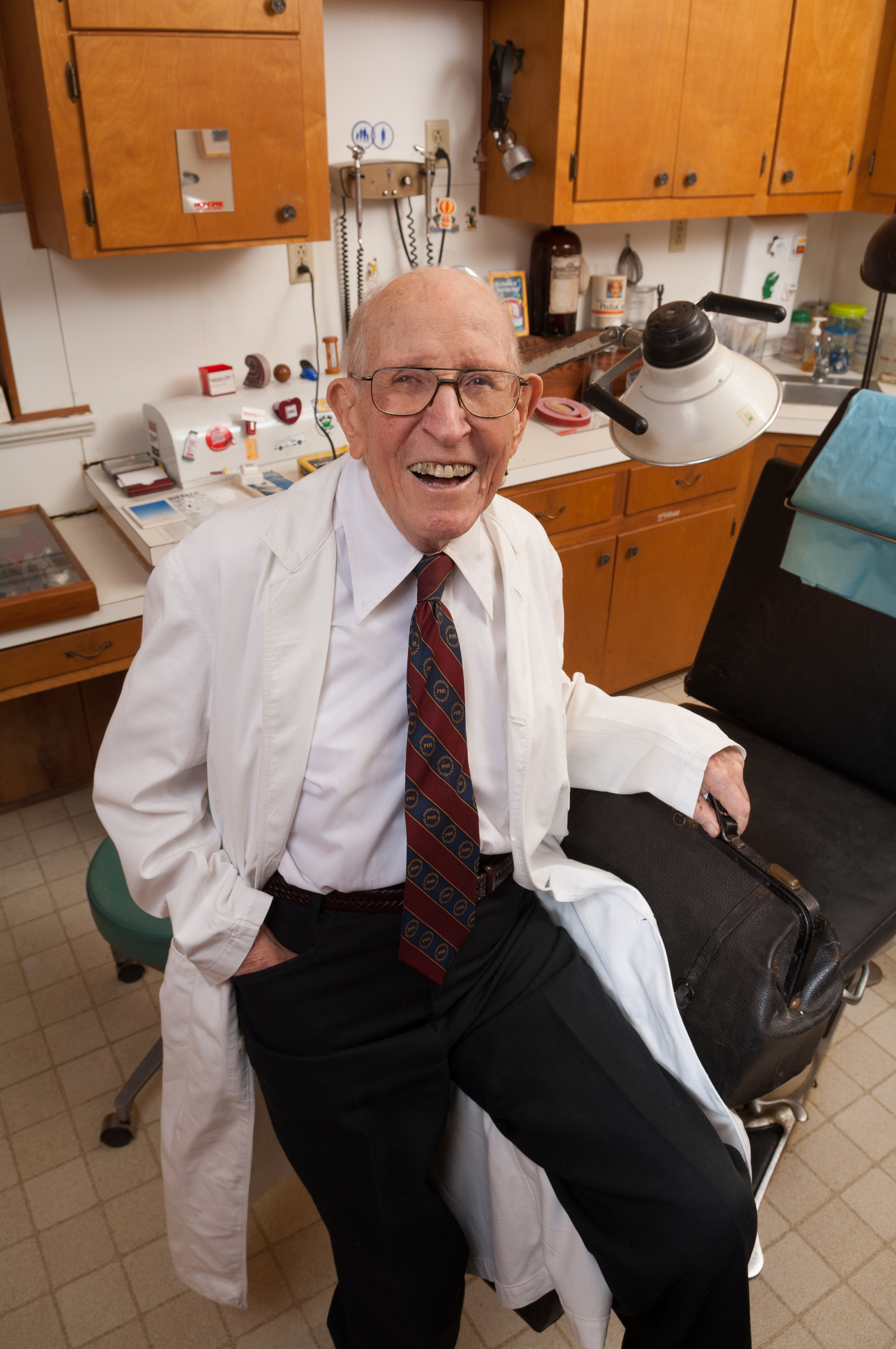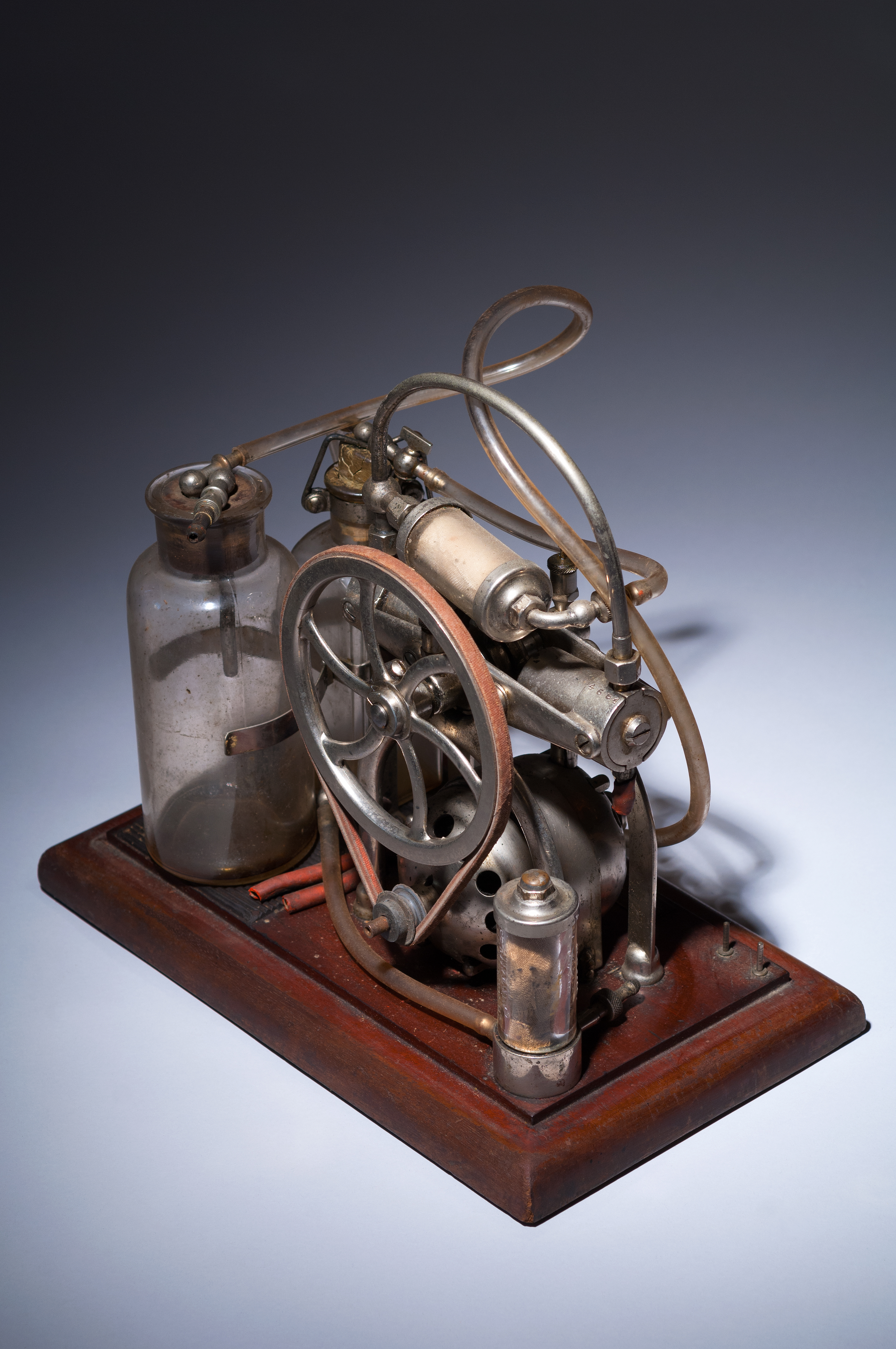William Shelton, M’52, is mesmerized by the simplicity behind an 1860s bloodletter, which is proudly displayed in his Boydton, Virginia, office.
“It’s the ingenuity behind it,” he said. “It’s pretty amazing.”

When William Shelton, M’52, retired in 2002, he closed the doors to his four-room office, and it’s been left unchanged to this day. It still houses his collection of several hundred medical artifacts, and he hopes to use it as a medical museum.
The device, used during an era when physicians believed removing blood from a patient could cure an assortment of ailments, relied on a spring to propel four circular blades into the skin.
“There certainly have been a lot of changes in medicine since those days,” Shelton said.
The bloodletter, also called a scarificator, is just one of several hundred medical artifacts that make up Shelton’s collection. The family physician began accumulating the pieces after opening his practice in rural Mecklenburg County more than 60 years ago.
His collection includes an intra-uterine syringe, scales that measure medication, leather physician bags, stethoscopes, nurses’ kits, a hand-operated centrifuge and a motorized stomach pump. Many items date to the 1800s. Shelton, who retired in 2002, thinks the oldest piece is a set of ebony-handled OB forceps.
“To see the work that went into making these instruments is very interesting,” he said.
Shelton, 93, grew up on a farm outside Boydton. An infantry officer with the Army for two years, he was honorably discharged in 1946. He earned his bachelor’s in agronomy from Virginia Tech, then began his medical training at MCV. He completed his medical internship at what was then known as Brooke Army Hospital in Texas, then worked as a physician at Alabama’s Camp Rucker (now Fort Rucker) and Fort Benning in Georgia before opening his own practice in 1954.
“I always knew I wanted to be a doctor,” said Shelton, who retired from the Army Medical Reserve in 1973. “My grandfather’s brother was a doctor. I guess it’s just the genes speaking out.”
He and his wife, Bird, married in 1952 and continue to reside in their historic home – part of
the original Radolph-Macon College – on 22 acres outside town.

One of hundreds of items William Shelton, M’52, collected over the course of his career, this pump was
used to empty the contents of the GI tract. “To see the work that went into making these instruments is very interesting,” he said.
“We love it here,” said Shelton’s wife. “I enjoyed his career as much as he did.”
Shelton often made house calls, delivering babies and setting broken bones. He had an office in the heart of town, but after hours he often tended to the sick in their homes or in the basement of his own.
“In the country, everyone knew who the doctor was and where he lived,” Shelton said. “I loved getting to know the families. Back then, you really got the chance to do that.
“There have been many advances in medicine and in education. Change will always be a part of health care.”
That’s why holding on to the past is so vital, Shelton said, and why he is so proud of his collection. The American Urological Association recently contacted him about showcasing some of his artifacts in a traveling exhibit this summer.
“I love these pieces,” Shelton said. “By learning about our past, we can help make things better for the future.”
By Janet Showalter
Photography by Kevin Schindler

